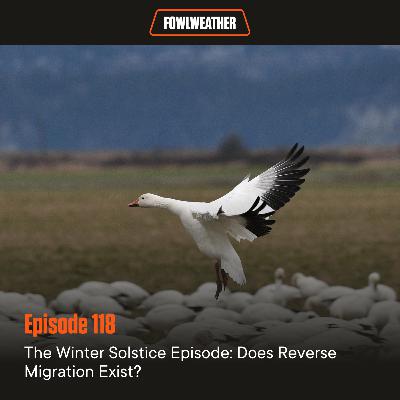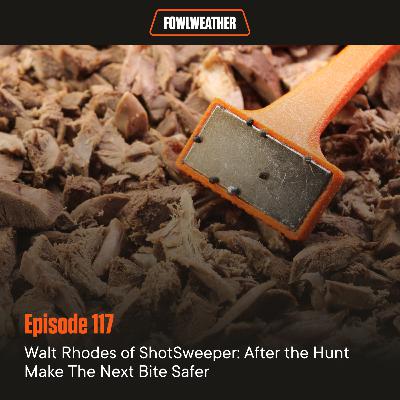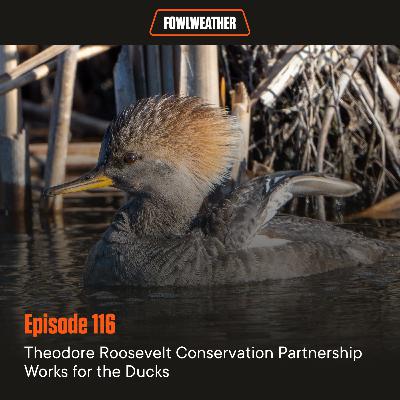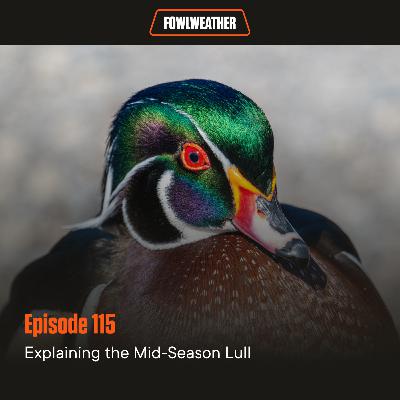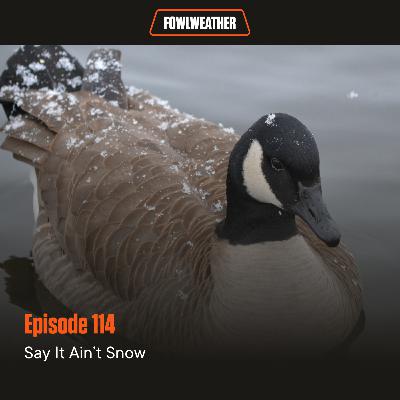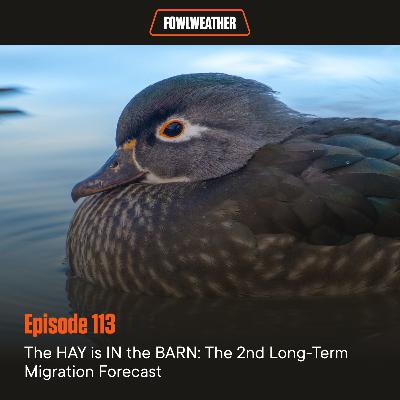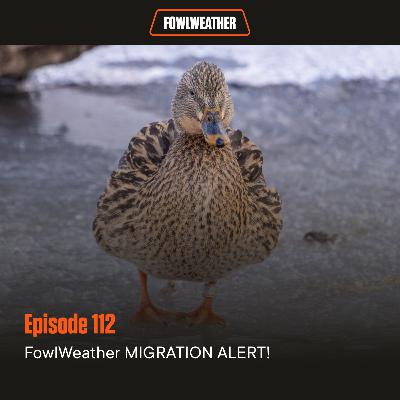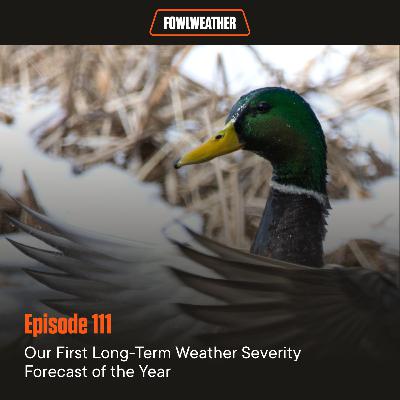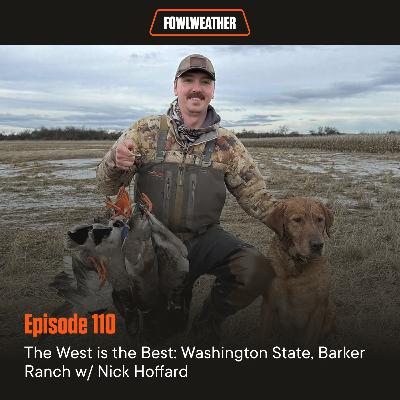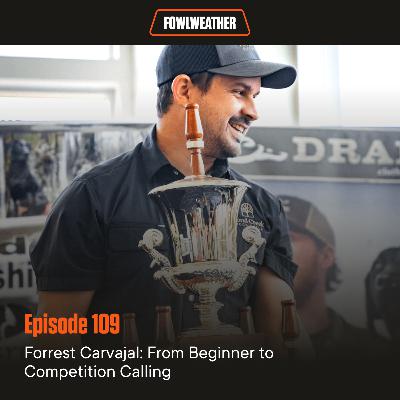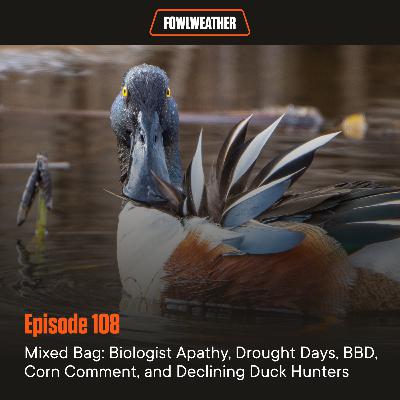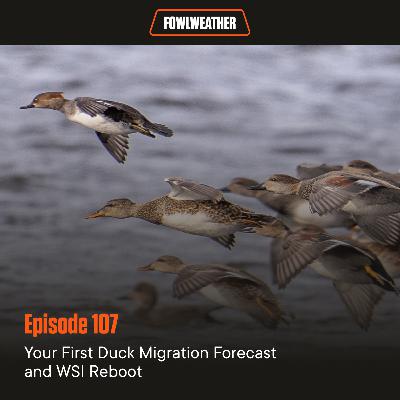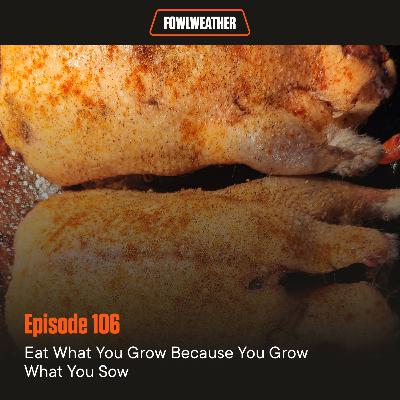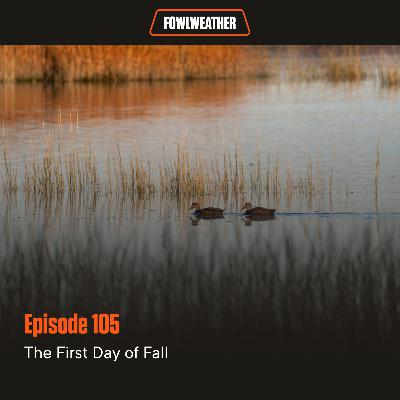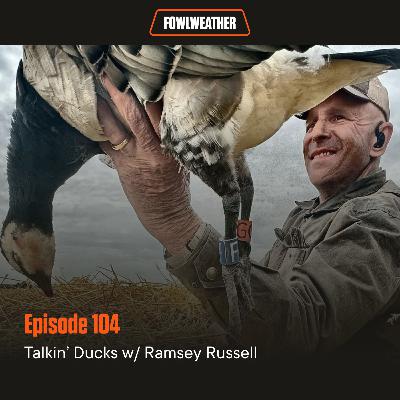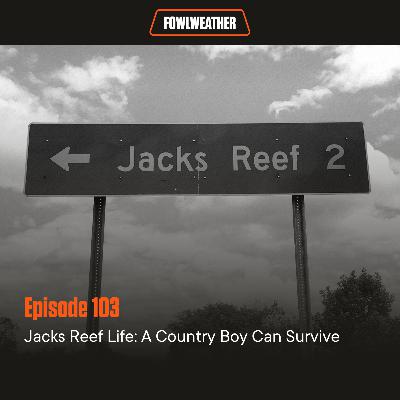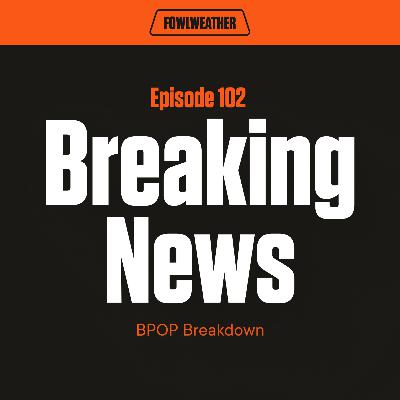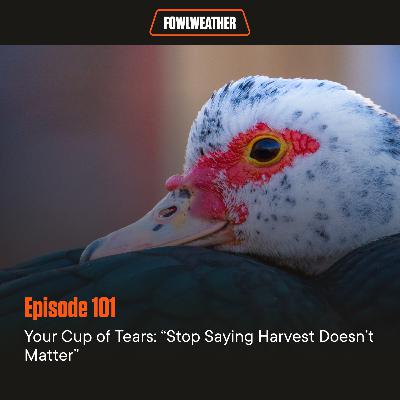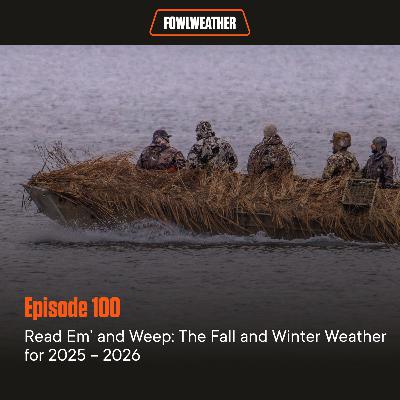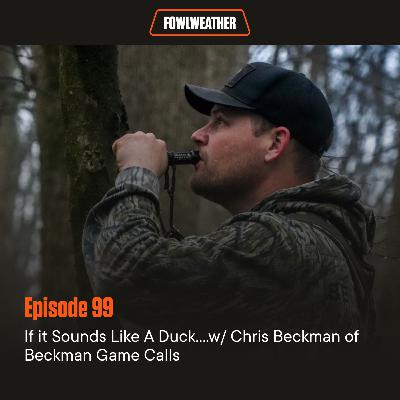Discover FowlWeather Podcast
FowlWeather Podcast

FowlWeather Podcast
Author: FowlWeather
Subscribed: 23Played: 1,471Subscribe
Share
© FowlWeather
Description
The forecast to your next successful hunt. Science-based forecasting built for the hunt.
Follow us on Spotify, Apple, Youtube & Vimeo
FowlWeather.co
Listen on Apple Podcasts
FowlWeather Youtube
FowlWeather Vimeo
Follow us on Spotify, Apple, Youtube & Vimeo
FowlWeather.co
Listen on Apple Podcasts
FowlWeather Youtube
FowlWeather Vimeo
119 Episodes
Reverse
The darkest days of the year. Does reverse migration exist?, DrMike says nope. Listen in to get the skinny on the science. That and your migration forecast for the week, all today on the FowlWeather Podcast.
Walt Rhodes joins the FowlWeather Podcast with his invention – ShotSweeper – after the hunt make the next bite safer. An innovative tool that detects non-toxic shot in meat. The first tool to detect non-toxic shot in gamebirds. Everyone has been there, don’t make another trip to the dentist after your next duck dinner. Join us today to hear about ShotSweeper and Walt’s wonderful career as a biologist.
The TRCP mission is to guarantee all Americans quality places to hunt and fish. Haven’t heard of them? Well you will today, from habitat work in the lower Mississippi Valley, to the pothole country where our ducks are raised, to helping provide greater access to hunters and anglers, TRCP’s Director of Private Lands Conservation, Aaron Field, and their Director for the Center of Fisheries and Mississippi River Program, Chris Maculuso join us from Minnesota and Louisiana to detail all their great work. That exclusive interview and your duck migration forecast, all this week on the FowlWeather Podcast.
The mid-season lull in duck action is a known problem and common conversation across duck country USA. What causes it? And how to combat the lull. That, a Kitchen Conversation teaser with the Merg Squad and our exclusive migration forecast, all today on the FowlWeather Podcast.
The COLD is coming and the FowlWeather Podcast team dives into the numbers to review how snow and ice cover have changed throughout the flyways. We also have MALLARDS ON THE MOVE, where will they peak this week. Also our migration forecast, and some listener Q &A, all today on the FowlWeather Podcast.
The Polar Vortex is primed to unleash the coldest we’ve seen in decades during November and December, but will it all come to be? The atmosphere is primed and DrMike details the howling winds, squalls, Alberta Clippers, noreaster’s, the Jacks Reef Lake Effect, and all that makes ducks move south. Wishing y’all the best of the season and predicting it all the FowlWeather way. Your second instalment of the Long-Term Forecast and your duck migration forecast for the coming week, all today and more on the FowlWeather Podcast.
FowlWeather MIGRATION ALERT…we do not report ducks that have already shown up, we predict migration and provide FowlWeather MIGRATION ALERTS. MIGRATION ALERTS before that migration has even happened. This week, we also cover photoperiod vs. weather duck migration, how ducks are not bucks, and so much more, plus, your only duck migration forecast available. All this week on the FowlWeather Podcast.
What will this fall and winter season bring? Will it be ducky? Or are we in another lull until January, find out today in the first of two Long-term Weather Severity Forecasts! DrMike digs deep into data that predicts or winter weather, that and your weekly duck migration forecast.
Nick Hoffard is the General Manager of The Barker Ranch. A world class 2,000+ acre duck hunting club located in West Richland in Washington State. Tasked with wetland and hunt management of the ranch, Nick brings a wealth of expertise to the discussion w DrMike, today on the FowlWeather Podcast. That and your duck migration forecast, all today on the FowlWeather Podcast.
Public lands duck hunter, call maker, competition caller, and host of the Off The X podcast, we are joined by Forrest Carvajal. Learn what it takes to fool the ducks, but mostly, we talk ducks, duck hunting, and being positive about all that is duck country. That and your duck migration forecast, all this week on the FowlWeather Podcast.
Ducks don’t sit still and neither should you, do you need to chase them to the ends of the Earth?, goodness no, but when the time in right, strike and do it with strategy, do it with precision, do it the FowlWeather Podcast way. Hunt the ducks, hot from the north. But also sit some days out because fighting every day makes no sense, fight when the fight is right. That, your migration forecast, comment on hunting success/or not, public lands biologist apathy for duck hunting, the northeast drought continues, the corn comment continues, all that and more, today on the FowlWeather Podcast.
The long awaited first duck migration forecast of the season, we also recap the Weather Severity Index and why it works so well, plus crop harvest is in full swing, will the dry continue in the east?, and some secrets to finding the duck honey hole, all today on the FowlWeather Podcast.
Today we cover “Use what you shoot 101”, the hurricane season meltdown, an October duck weather forecast, busy, busy episode; nearly on the eve of the 1st of October Orion greets us and the dawn, winter is on its way. We tackle it all head-on in an age when waterfowl should be respected, revered, and honored more than ever. Join us, for thoughts on duck country USA, and respect for all the ole hen mallards out there…all today on the FowlWeather Podcast.
Released on the first day of Fall, hints of Fall weather in the air and, in this episode, DrMike breaks down the migration, harvest numbers across the country, keeping faith in duck hunting, and a high-pressure system dubbed The Death Ridge. Hurricane season remains quiet, teal seasons are here, but numbers are down for many, how are folks fairing across the country for teal. All today on the FowlWeather Podcast.
It is Duck Season Somewhere. We are joined by Ramsey Russell. Quickly becoming a story telling legend. We dive deep with Ramsey about his beginnings, his take on the status of duck hunting in North America, and what’s his next adventure. We cover the culture of duck hunting, 3 pintail limit, are ducks doomed?, has the migration changed?, and what happens if we go to a 30-day season?. Join us for a fun, fact-filled episode of the FowlWeather Podcast.
Jacks Reef isn’t even an incorporated township, sitting along an old section of the Seneca River, now cut off by an addition to the Erie Canal and sitting in swamp country, USA, Jacks Reef is a long-gone entity from times past when mule drawn barges and brothels were the theme of the day. Nowadays, DrMike calls Jacks Reef home, in this episode DrMike takes on the critics, those calling him out for being a NY kid. In this fun, packed, story telling episode, we also further dissect the BPOP survey and AHM reports along with a tropical update, all today on the FowlWeather Podcast.
The Waterfowl Status Report is out; later than normal but still in time for the flyway meetings. Did the FowlWeather Podcast predict it correctly?, was the Mallard BPOP estimate down 10%? and May Pond by another 15% this year? In this BONUS episode DrMike breaks down the BPOP. Are we in a restrictive season in the MS flyway for 2026? Did the eastern Mallard population stay high enough for a 4 mallard bag per day for 2026 in the Atlantic Flyway? Find out today in this important BONUS, BREAKING NEWS episode of the FowlWeather Podcast.
Harvest doesn’t matter, but it does. DrMike explains why harvest doesn’t matter, but also how it can and does for some species. 10 things you can do to save the ducks. We respond to your hate mail. We reflect on the past 2 years of the FowlWeather Podcast. We compare and contrast the North American and Europeans models of waterfowl conservation and hunting, plus a big announcement from the Beckman Game Calls – FowlWeather Podcast collaboration. Hint – it involves duck calls – all today, on the FowlWeather Podcast.
Read em’ and Weep – Facts Matter. The FowlWeather Podcast: The forecast to your next successful hunt! What does the duck season for Fall and Winter 2025-2026 have in store for us? Will the ducks arrive on schedule like the good ole’ days or will it be another year of swatting mosquitoes and empty skies. It is pretty early but there are some tell tale signs showing up in the atmosphere, so DrMike sticks his neck out again to let us know what weather factors we should consider for our 25/26 duck season.
Chris Beckman is a dedicated call maker from Louisiana. His claim-to-fame is his unique designs in his flagship call, The Edison, and making the first adjustable cut-down duck call, The Groundbreaker. We meet w/ Chris to talk about the evolution of the cut down and how his advancements in duck call design make his calls, really, really, really sound like a duck.


